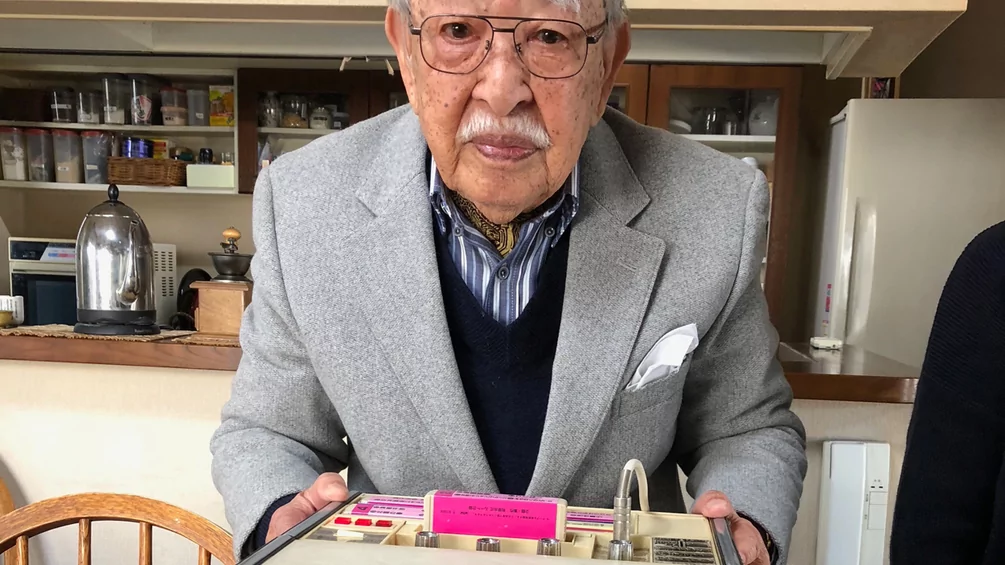
Shigeichi Negishi, inventor of Karaoke, dies aged 100
Japanese engineer Shigeichi Negishi, inventor of the karaoke machine, has died aged 100.
News of his passing was shared last night by Tokyo-based reporter Matt Alt, who wrote on X: “Farewell to another legend: Shigeichi Negishi, inventor of karaoke, has died age 100. By automating the sing-along, he earned the enmity of performers who saw his machine as a threat to their jobs. It’s an eerie precursor of the debate surrounding AI’s impact on artists today.”
Negishi died on 26th January from natural causes after suffering a fall, his daughter Atsumi Takano revealed to Alt, who had previously interviewed the inventor for his novel Pure Invention: How Japan Made the Modern World.
The idea for the first karaoke-style machine came to Negishi in 1967, whilst he was working as an engineer at a car audio system assembly business in Tokyo. A colleague had joked that Negishi had a terrible singing voice, and he thought to himself, “If only they could hear my voice over a backing track!”, according to Alt’s obituary in The Wall Street Journal, published last night.
He instructed one of his staff members to wire together a microphone, speaker, and tape deck, before inserting an instrumental recording of a Yoshio Kodama track to test it out. After being impressed with the results, Negishi took the prototype home to show his family, accidentally starting the first karaoke session.
The engineer instantly recognised the commercial potential of the device and joined forces with a close friend to distribute it. They decided to call the concept ‘karaoke’ (a blend of the words “empty” and “orchestra” in Japanese), and frequently used in Japan to refer to as singers who used backing tracks to perform.
The first official singalong machine, which Negishi named the “Sparko Box”, first came to market in 1967. During this time, he reportedly drove all over Japan demonstrating the device to owners of bars, hotels, restaurants – “any venue where patrons might gather to drink, unwind and sing.”
Despite its ingenuity, the Sparko Box proved to be difficult to sell. The machine required vast numbers of instrumental tapes in order to operate, and Negishi also faced pushback from local musicians, who felt that the machine was taking away from their income at bars and nightclubs.
Karaoke would eventually go on to become widely popular in Japan in the 1970s, with dedicated singalong bars opening across the capital and many people buying their own machines to use at home. Negishi remained among the first among five Japanese inventors who independently created karaoke machines.
Although the invention of the first karaoke machine has long been attributed to Daisuke Inoue, a Japanese musician who released the “8 Juke” in 1971, Negishi’s Sparko Box is recognised as the earliest singing machine by the All-Japan Karaoke Industrialist Association. Negishi never patented his creation.
Today, karaoke is popular across the globe and is considered to be one of Japan’s most beloved cultural exports. Only one Sparko Box remains, which is kept by Negishi’s family as a memento.
Since news was shared of Negishi’s passing, people have been paying their respects across the internet, including on gaming forum, ResetEra, where one fan wrote: “Wow, it’s crazy that I have never once thought about the origins of karaoke. Absolute legend here. RIP.”
Another shared: “Thank you Negishi-san. So many asian countries were changed thanks to your technology.”
Read Matt Alt’s full obituary in The Wall Street Journal here.





